Can can't
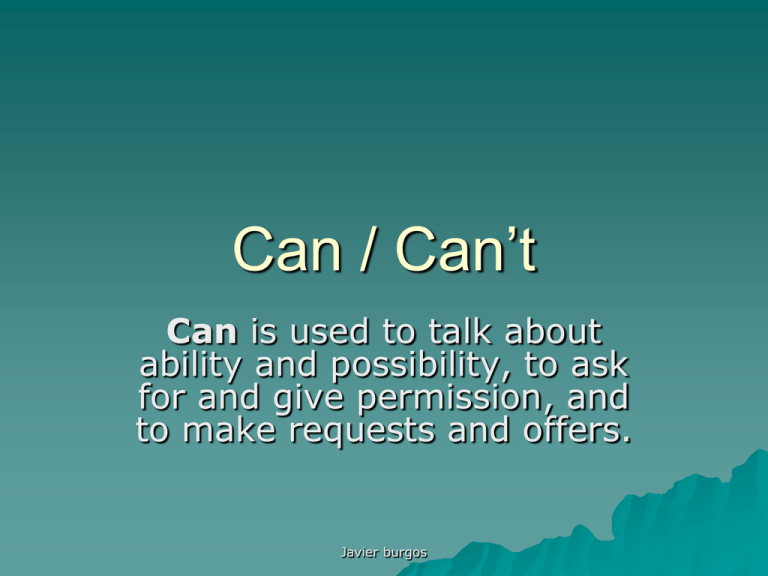
Can / Can`t
In "can't," the vowel sound is never reduced. This difference in sound is also connected to word stress - how loud and long we say each word in a phrase or sentence. In "can take," the.

MangaCat Can't Say Can't
Can, can't - Grammar chart. Download full-size image from Pinterest Can, can't - Form Infinitive without to. We use can + infinitive without to. I can swim.; I can to swim.; We can't come.; We can't to come.; Don't use -s after he/she/it. We don't add -s after he/she/it.. We use can for all persons. He can swim.; He cans swim.; Don't use do/don't. Can is an auxiliary verb.

Can can't
Introduction Welcome to our language learning haven, where we unravel the subtleties of English grammar. In this article, we'll delve into the distinctions between two common modal verbs: can and can't. By understanding their meanings, applications, and usage, you'll confidently navigate conversations and express abilities or limitations. Let's embark on this enlightening journey of clarification.
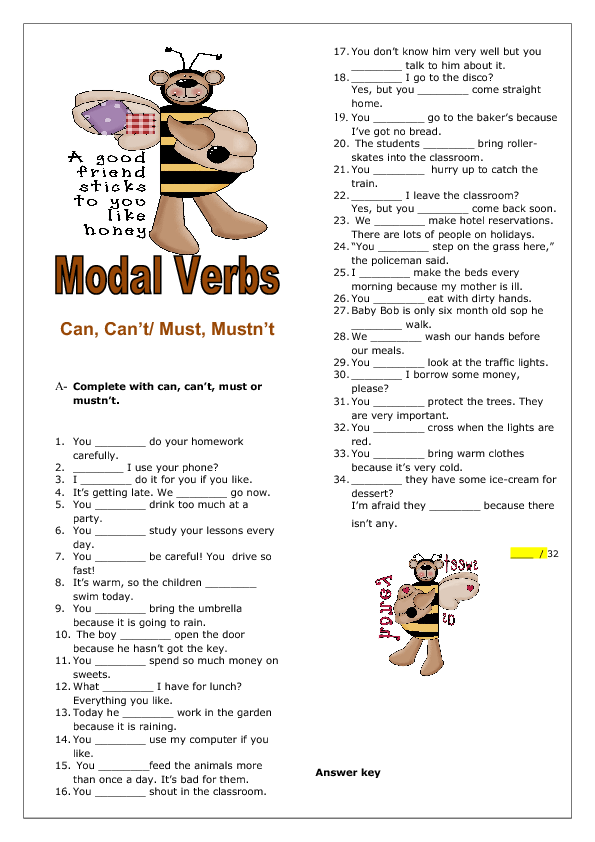
Can, Can’t / Must, Mustn't Elementary Worksheet
CAN'T meaning: used as a contraction of cannot
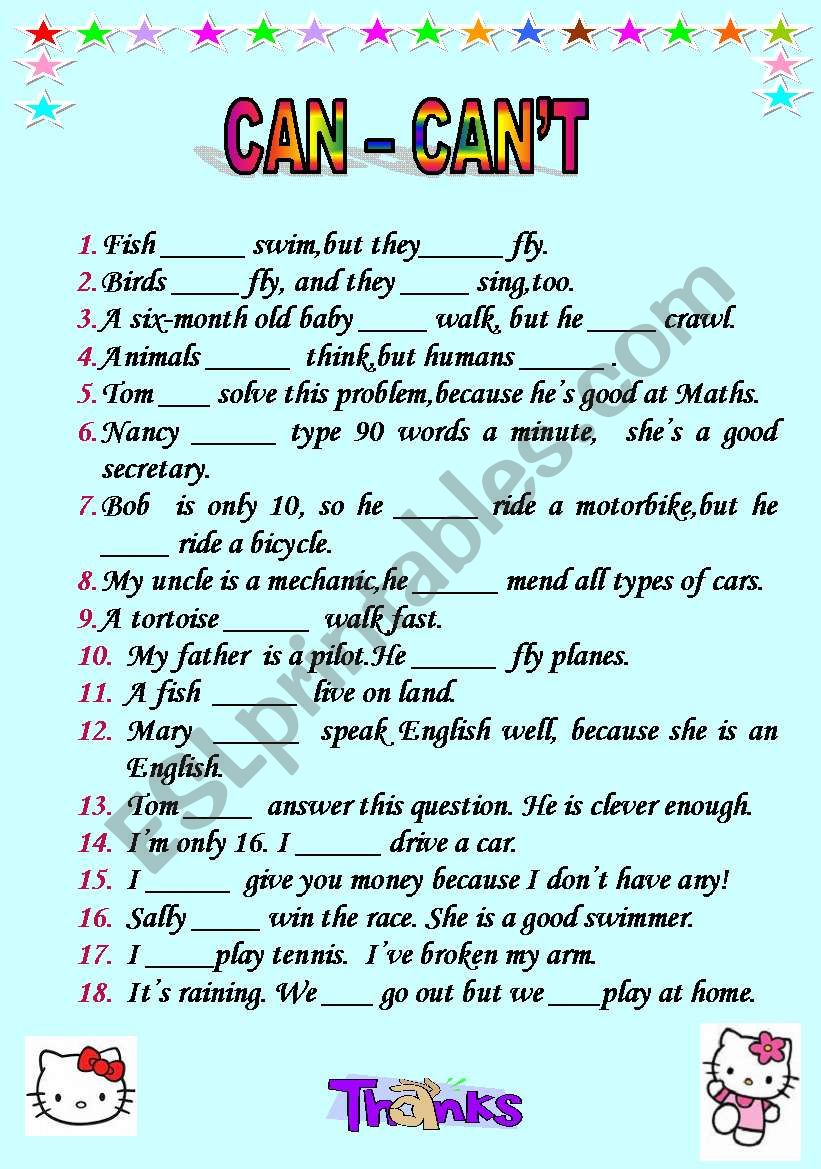
CAN CAN´T ESL worksheet by flapanta
CAN'T meaning: 1. short form of cannot: 2. often used to suggest that someone should do a particular thing…. Learn more.

Can can't
CAN / CAN'T shows ability, inability, request, permission, possibility, and inappropriateness. Also see: Can Can't Exercises Can Can't Exercises 2 Can vs Could Exercises Modal Verbs Examples: a. I can speak English. b. You can leave early today.

Can vs. Can't American English Pronunciation — GOALS English
Visit https://www.eduenglish.it/ for more videos and teaching resources#Can #Cant #EnglishForKids #EnglishGrammar How to use the modal verb can to express ab.

CAN / CAN'T YouTube
Modals - 'can' and 'can't' We can use can and can't to talk about abilities in the present.. I can swim. They can speak English. He can't ride a bike.. How to use them. Use the infinitive without to after can and can't.. I can swim. You can run fast. She can ride a bike. We can't speak Japanese. They can't play the guitar.. For questions, change the order of can and the person.
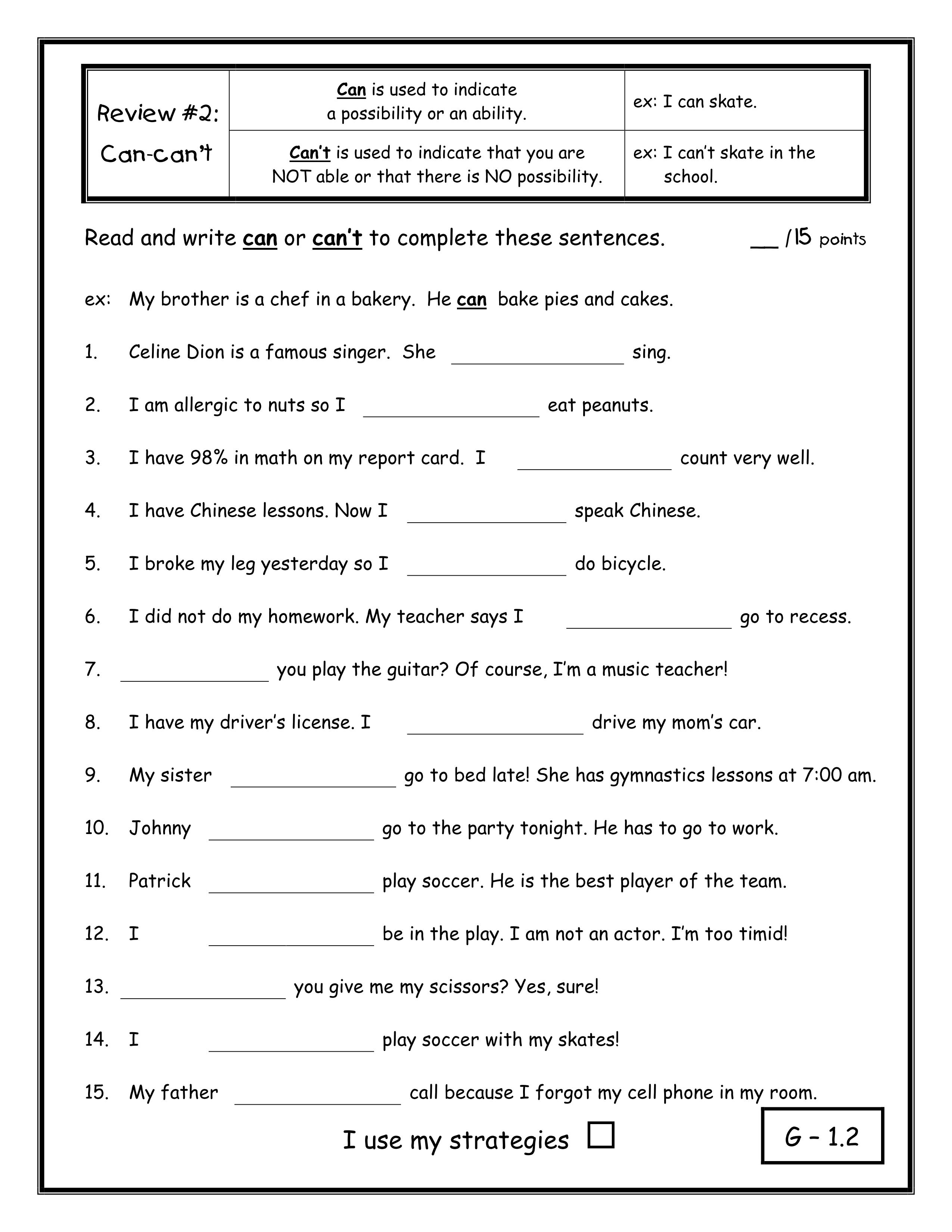
Can / Can't Miss English
can't. Cannot (negative auxiliary [3] ); is unable to; does not have the ability to. Antonyms: be able to, can. I can't quite get it to work. 2012, BioWare, Mass Effect 3 ( Science Fiction ), Redwood City: Electronic Arts, →OCLC, PC, scene: Tuchanka: Shepard: Mordin, walk away. Mordin: Can't do that, Shepard. Shepard: I don't have a choice.
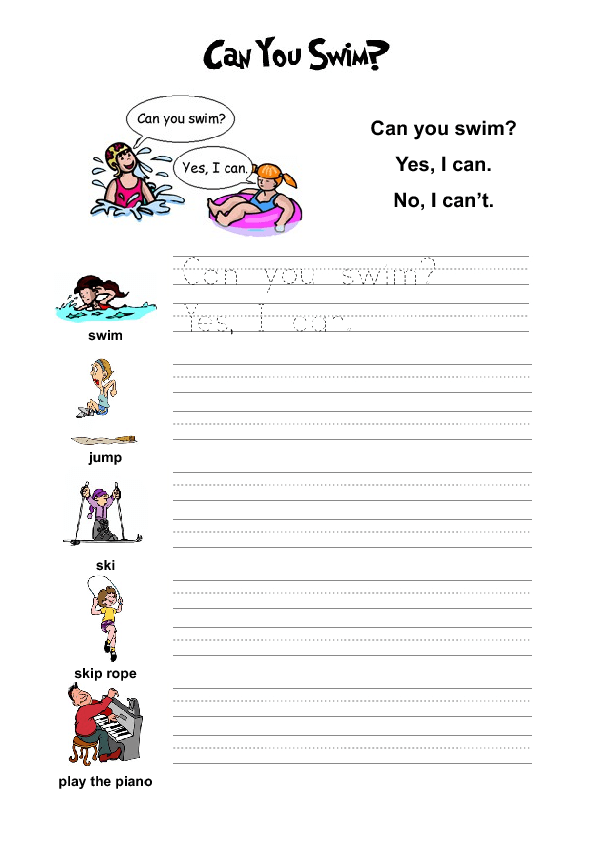
Can/Can`t
CAN vs. CAN'T has to be one of the aspects of American pronunciation that learners find the most tricky. It can be so difficult to hear the difference! So in.

Can/can't PPT general gramma… English ESL powerpoints
Here is a quick summary: Can't is a contraction of cannot, and it's best suited for informal writing. In formal writing and where contractions are frowned upon, use cannot. It is possible to write can not, but you generally find it only as part of some other construction, such as "not only . . . but also.".

What is the Difference between Cannot, Can not and Can’t?
I can't stand it, Clapton. 12-16-2023 05:41 PM. "When the power of love overcomes the love of power, the world will know peace.". - Jimi Hendrix.
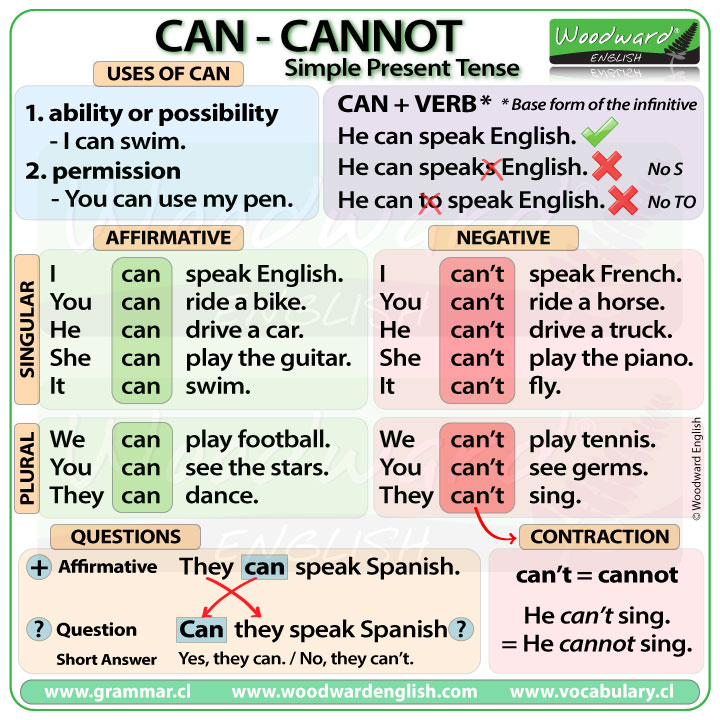
UNIDAD 2 ZOO ANIMALS. AROUND TOWN (7 semanas) 4todebasicapu
The meaning of CAN'T is can not.
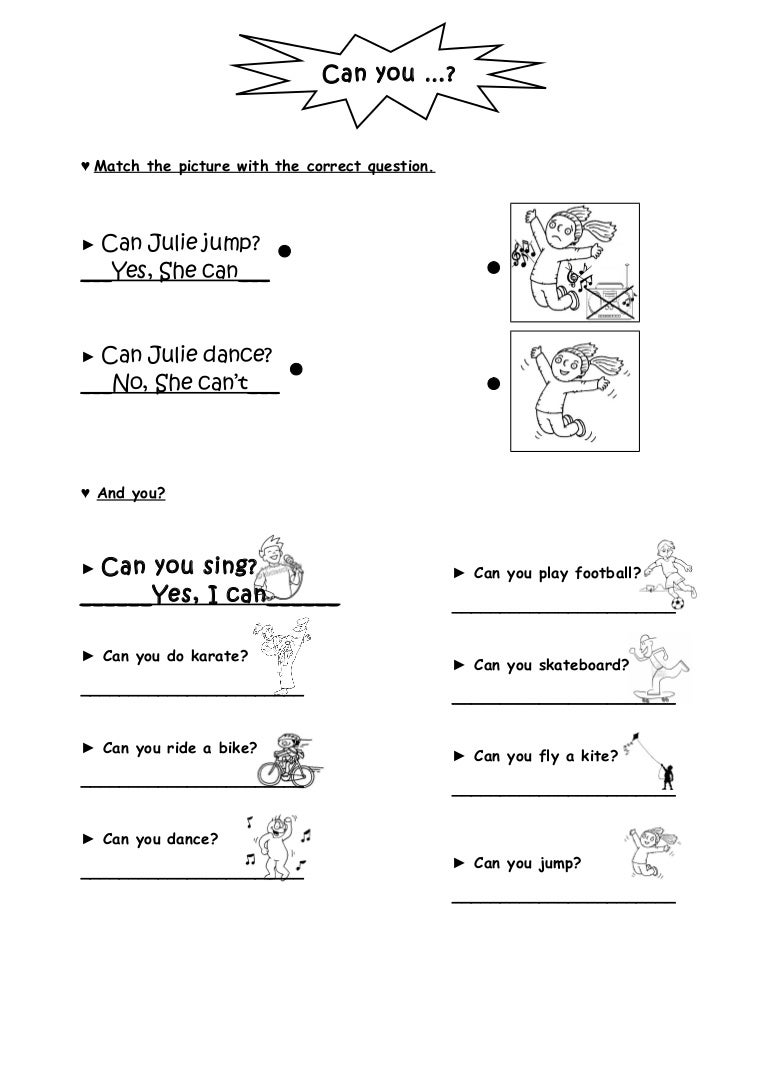
Can can't
Can - English Grammar Today - a reference to written and spoken English grammar and usage - Cambridge Dictionary

My English Printables
Can - can't statements and negatives. To form the negative add "not" after can to form one word. Example: cannot. Short form: can't. (can't = cannot) I can write a letter. You can write a letter. He / She can write a letter. We can write a letter. You can write a letter.
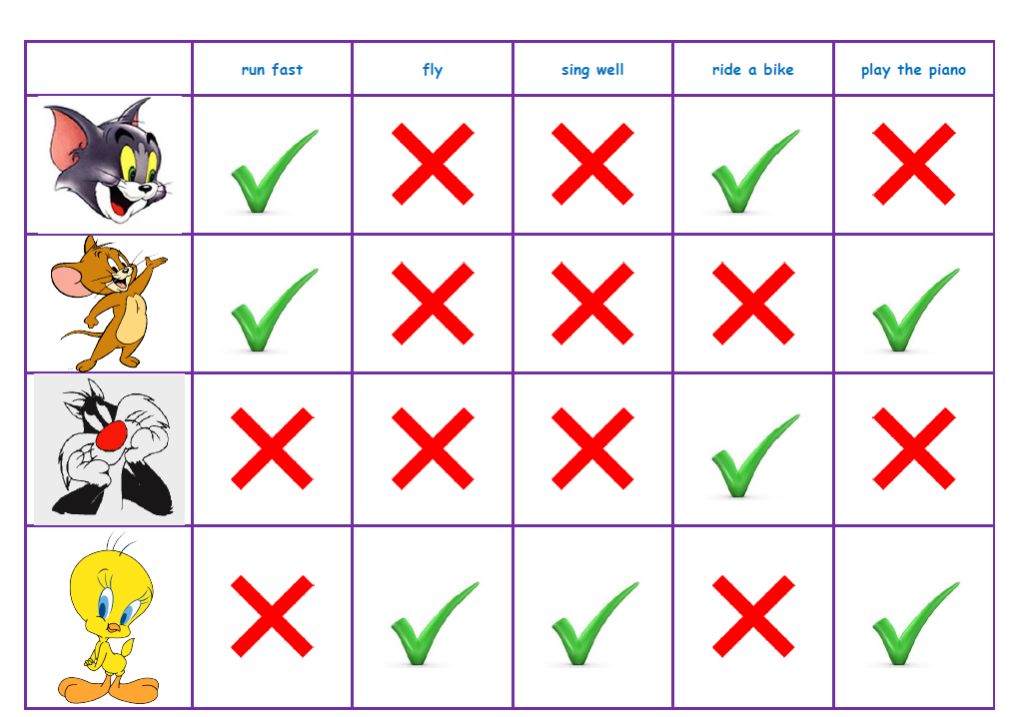
Clase X CAN or CAN'T
@Peter Shor: written, patent and beaten (along with mitten, kitten, etc.) all take glottal stop in Standard American English.The pattern is that you get a glottal stop when a /t/ is followed by an unstressed vowel and an /n/, and otherwise you get a flap. I know of a dialect that puts a flap in all contexts (presumably yours), but that pattern is not common in general.